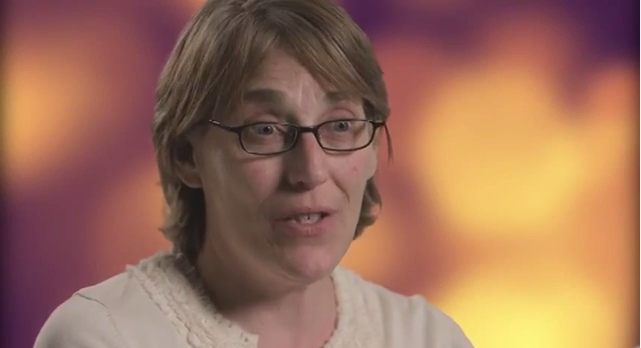Measles Virus Cures Cancer In Woman With Multiple Myeloma; Stacy Erholtz Now Fundraising More Research

Like many people diagnosed with cancer, Stacy Erholtz didn’t know if she would survive for long. But thanks to an altered version of the measles virus that reduced her tumors to nothing in just 36 hours, the 50-year-old mother is now in remission.
Erholtz, who is originally from Minnesota, was diagnosed with multiple myeloma — a form of blood cancer that forms in plasma cells. Multiple myeloma causes cancer cells to gather in bone marrow, where they push out healthy cells and produce abnormal proteins that cause kidney problems. Erholtz underwent chemotherapy and stem cell transplants, but it didn’t cure the cancer, so she ended up being accepted into the measles trial. By that point, she had tumors all over her collarbone, sternum, and spine, as well as one large tumor on her forehead, which her kids nicknamed Earl.
“When I was first diagnosed, there was not a lot of options,” Erholtz told ABC News. “We strung together 10 years of life with a disease that is typically done in three to five. I’m encouraged. I want people to join me in remission right now.”
Erholtz became known as Patient 11.2 — only the second in the world to receive the huge infusion of live measles virus. “In a half-hour sitting, a 4-inch by 4-inch bag of fluid was emitted into her body, releasing 100 billion live measles cells into her blood stream — a staggering amount that could essentially vaccinate 10 million individuals,” Erholtz’s website states. Soon, Erholtz was vomiting and feverish from measles, with a temperature as high as 105 degrees. But after a few days, she recovered — and her tumors were gone.
Erholtz and another patient were given the highest dose of the engineered measles virus. Though both patients experienced remission to some extent, Erholtz saw all signs of cancer disappear completely in a remarkably brief period of time. "At the Fourth of July parade, my mom and my husband accused me of taking some steroids because I was so crazy energetic," Erholtz told ABC News about her recovery. "I was having a great time. They had not seen that kind of energy from me for a long time."
The measles virus trial now has 400 patients on a wait list, all of them hoping to see their tumors disappear like Ertholz's did. But it's hard to say whether the measles treatment holds any long-term promise. Using viruses to fight cancer has been studied for many years, but it's difficult to get the viruses to kill cancer cells without destroying the person's body at the same time. "Although encouraging results have been demonstrated in vitro and in animal models, most oncolytic viruses have failed to impress in the clinical setting," the authors of a 2010 study write in their abstract. "The explanation is multifactorial, determined by the complex interactions between the tumor and its microenvironment, the virus, and the host immune response."
Erholtz in particular had virtually no measles antibodies in her blood; the trial participants also must meet this criteria to be eligible. It has yet to be seen whether the promising results in Erholtz's case can be replicated, but for now she's fighting to educate people about the treatment. She also founded Viral Village, which aims to "expedite the production of the measles virus so others could experience the same miracle of medicine." She hopes to remove the "bottleneck" in manufacturing experimental cancer drugs.
"This could potentially be the cure to cancer," she said. "And it's not just about me. If we can start treating cancer with measles, let's do it and remove all barriers in the process."



























